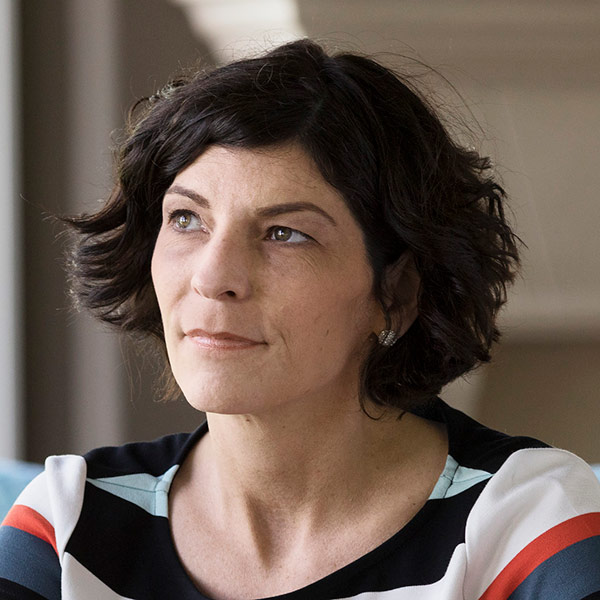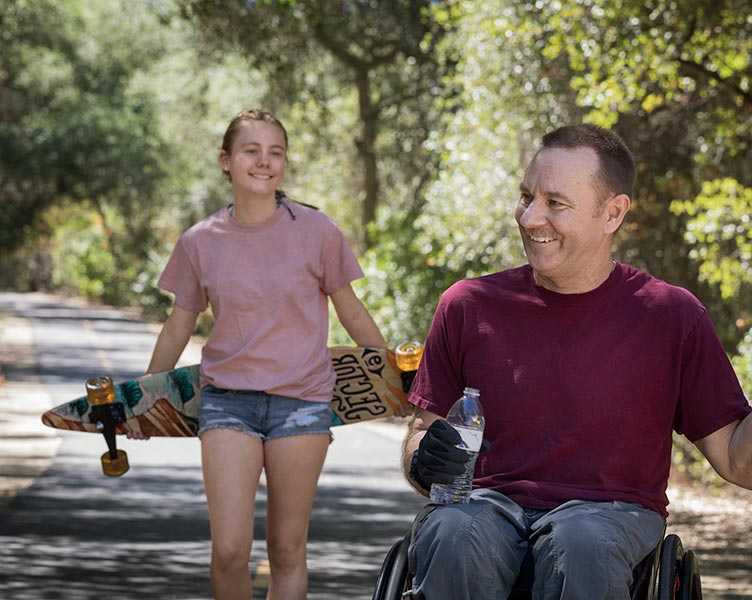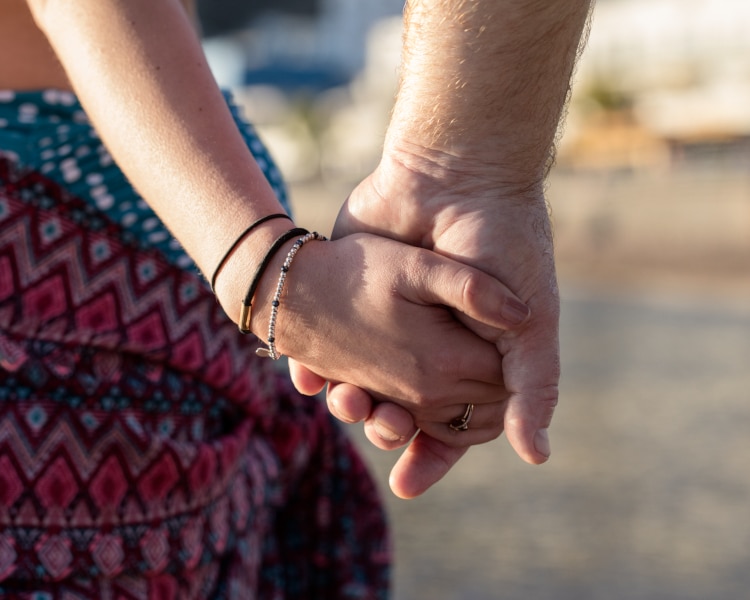An active lifestyle is a fantastic gift you can always give yourself. Daily exercise can help both your physical and mental wellbeing. It can give you more energy, as well as making you stronger and better equipped to deal with your bowel issues. Always talk to your healthcare provider before starting or changing any exercises or exercise routine.
Exercise in my daily life: the benefits!
Daily activity is always a good idea and regular exercise can help in many ways, both mentally and physically.
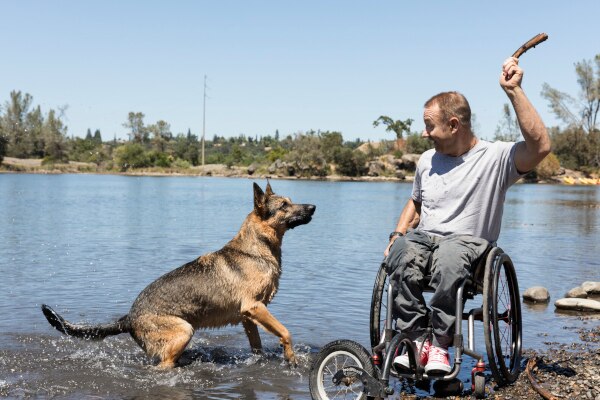
Boost your confidence
Regular exercise is great for getting you back in touch with yourself. If you live with a bowel dysfunction, this may feature prominently in how you define yourself. Physical activity can help you to appreciate your body, learn what you can do and help you develop your own identity and self-awareness.
Exercise can help to give you the energy and courage you need to get back to living your best possible life and help to reduce any impact your bowel issues may have on your mental wellbeing.
Manage stress
With this new boost to your confidence and energy levels, you may also find you can deal better with stress. This may ultimately help you to manage your TAI routine more effectively.
For some, exercise like swimming, running or cycling also provides that quiet, alone time that offers you a chance to reflect and get your thoughts in order.
An opportunity for some socialising
For some, sport and socializing often go hand in hand. If you get involved in sports in your local community, you will immediately expand your social circle. You may even make some good new friends. On a day when you are feeling down regarding your bowel issues, a different social group and a distraction may be exactly what you need.
Physical activity that is right for me
Everyone has different levels of physical activity that are right for them. And what is great for one person may be completely different for another. That’s OK, take the time to get a feel for what suits you and your needs. Have a look at some simple suggestions below to get started:
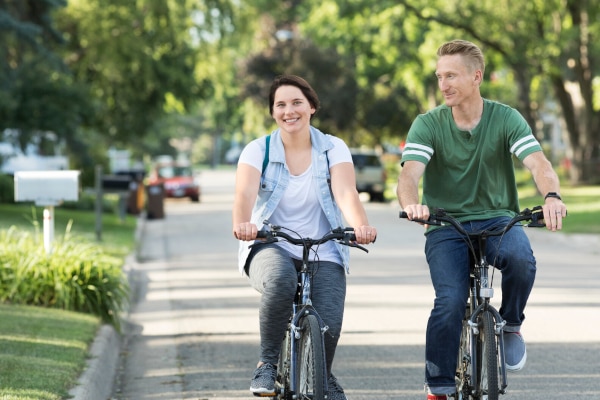
Make use of your local area
You don’t need to look far to find simple ways to get more exercise. Simply taking the time to explore your local area some more on foot, or if possible, taking yourself out on your bike are both great ways to burn calories without too much forward planning. You are also free to challenge yourself by lengthening your routes or taking more challenging paths as you wish. When you challenge yourself to go further, your strength and endurance will improve. Always talk to your healthcare provider before starting or changing any exercise or exercise routines.
Swimming and water aerobics are also great ways to stay fit! With your weight supported by the water, swimming gives your muscles a workout with minimal risk of injury. These activities can also help you develop more flexibility and it's a good option if you have arthritis.
Exercising at home
You don’t always have to venture out to get fit. More and more people are keeping fit in their home and you can too. You may wish to invest in some weights and try some strength exercises. This can be a great option if you are not so mobile but still want to blow off steam.
Strength training with weights or resistance bands can help you maintain or build muscle, increasing your endurance and it can reduce the risk of joint injury, helping you stay lean and healthy. Always talk to your healthcare provider before starting or increasing any strength training.
Engage in organised sports
Participating in team sports can be a great way of keeping you on track with your fitness: other people are counting on you! By participating in team sports, you may even find it is easier to overcome self-awareness concerns as you are distracted by the others around you. Always talk to your healthcare provider before starting or changing any sports or team activities.
You may wish to join a local team and play competitively, or rather just keep it casual. Of course, you can think of your immediate sports clubs like football, tennis, basketball and the like, but they don’t all have to be highly strenuous. Sports like golf are also out there waiting for you to give them a try and can be a fantastic way to combine exercise with getting fresh air and spending time with friends.
If you want to find out more about local sports clubs for you, you may also want to reach out to local support groups in your area. Other TAI users will have done this before and will be able to offer you their advice on what sports clubs and exercises worked for them!
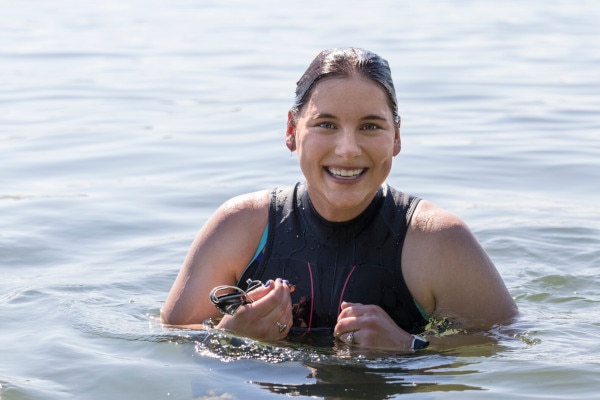
I don’t normally exercise – what should I do?
No matter! All physical activity is a step in the right direction and can promote a heathier lifestyle. Start small and build up from there. You may choose to start out with a simple walk to get you and your body used to your new healthier lifestyle.
If you struggle with motivation, reach out to a friend or family member to support you. Including other people in your exercise plans can help you stay on track and keep going!

